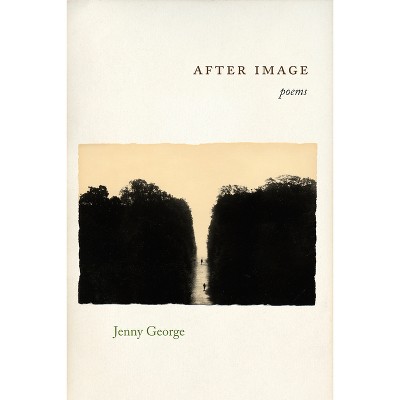Sponsored

The Theory and Practice of Rivers
In Stock
Sponsored
About this item
Highlights
- Jim Harrison's The Theory and Practice of Rivers returns to print as a celebratory, stand-alone volume.In her heartfelt and powerful introduction, Rebecca Solnit calls this collection both an elegy, inspired by the death of Harrison's teenage niece, and a "loose memoir" teeming with thoughts and images that leap intuitively across subjects, recalling myriad experiences, places, and encounters.
- About the Author: Jim Harrison (1937-2016) was the author of over three dozen books, including Legends of the Fall and Dalva, and served as the food columnist for the magazines Brick and Esquire.
- 104 Pages
- Poetry, Subjects & Themes
Description
About the Book
"A collection of poems by Jim Harrison"--Book Synopsis
Jim Harrison's The Theory and Practice of Rivers returns to print as a celebratory, stand-alone volume.In her heartfelt and powerful introduction, Rebecca Solnit calls this collection both an elegy, inspired by the death of Harrison's teenage niece, and a "loose memoir" teeming with thoughts and images that leap intuitively across subjects, recalling myriad experiences, places, and encounters. A handwritten draft of the title poem, retrieved from Harrison's extensive literary archive, provides a rare and intimate window into his surging creative process. As Outside magazine puts it, The Theory and Practice of Rivers is filled with "moving water, the search for consolation and meaning in the sublime rightness of wild landscape." This contemporary classic speaks to the rivers and cascades in all of us, the ceaseless motion by which our lives are determined.
Review Quotes
Praise for The Theory and Practice of Rivers
"Modern classic."----Michael Schaub, Orange County Register
Praise for Jim Harrison
"Mr. Harrison's novels and poems over the last two decades have been increasingly preoccupied with mortality, never so much as in Dead Man's Float, his very good new book of verse. . . . The title of this volume, Dead Man's Float, refers to a way to stay alive in the water when one has grown tired while far from shore. As a poet, however, Mr. Harrison is not passively drifting. He remains committed to language, and to what pleasures he can catch."--Dwight Garner, New York Times
"[Harrison] equates writing poetry with creating cave paintings or petroglyphs, so intrinsically human is the urge to express the life of the soul, and his poems do make the temporal timeless."--Booklist, STARRED review
"The way Harrison has embedded his entire vision of our predicament implicitly in the particulars of two poetic lives, his own and Yesenin's, is what makes the poem not only his best but one of the best in the past twenty-five years of American writing. It does one of the things that art must do: unflinchingly, it gives us our own image, and it does so in superbly controlled and concise language."--Hayden Carruth
"His poems stun us simply, with the richness of the clarity, detail, and the immediacy of Harrison's voice."--Publishers Weekly
"[A] fitful amalgam of memory and myth, meditation and nightmare, lucidity and delirium. . . . In 'trying to become alert enough to live, ' the narrator sinks and surfaces, clutching at vivid bits of psychic debris that collectively define 'the longest journey taken in a split second.'"--Fred Muratori, Library Journal
"His is a unique and original voice with no alliances to any school or system of writing. It is important that we have a poet today who understands the world the way he does. Harrison writes about the world of the shrinking outdoors and the world of urban decay and delivers both with wit and insight and gravity."--Mark Hillringhouse, Literary Review
"While since 1971 much of Harrison's energy has been consumed by his work as a novelist and screenwriter, he continues to write a poetry that defies current trends and conventions."--Midwest Quarterly
"Harrison's poetry is earthy in the fullest sense of the word: it is of the earth, stoked by the senses, in sync with the beat of life, and salty in its forthrightness. Harrison gleans lessons from rivers, the moon, birds, and dogs, and puzzles over the elusive nature of time, tagging clocks as 'the machinery of dread'."--Booklist
About the Author
Jim Harrison (1937-2016) was the author of over three dozen books, including Legends of the Fall and Dalva, and served as the food columnist for the magazines Brick and Esquire. He published fourteen volumes of poetry, the final being Dead Man's Float (2016). His work has been translated into two dozen languages and produced as four feature-length films. As a young poet he co-edited Sumac magazine with fellow poet Dan Gerber, and earned fellowships from the National Endowment for the Arts and the Guggenheim Foundation. In 2007, he was elected into the Academy of American Arts and Letters. Regarding his most beloved art form, he wrote: "Poetry, at its best, is the language your soul would speak if you could teach your soul to speak." Jim Harrison certainly spoke the language.
Rebecca Solnit's nonfiction is capacious and innovative. She has received the Guggenheim Fellowship, the Lannan Literary Award, the Windham-Campbell Prize, and the National Book Critics Circle Award. Most known for Orwell's Roses, A Paradise Built in Hell, and Recollections of My Nonexistence, Solnit travels widely, sharing her original blends of memoir, scholarship, geography, and criticism. Her voice is singular and polyphonic, with the logistical talents of a prose writer and the concision of a lyric poet. She is an intersectional feminist and supports diverse causes, having founded Not Too Late, a climate project. An advocate of public education, she attended the Berkeley Graduate School of Journalism at the University of California, and has lived as a journalist, historian, activist, and independent writer since 1988. A contributing editor at Harper's Magazine and a frequent writer for The Guardian and Literary Hub, she is based in San Francisco, California.
Shipping details
Return details
Trending Poetry











